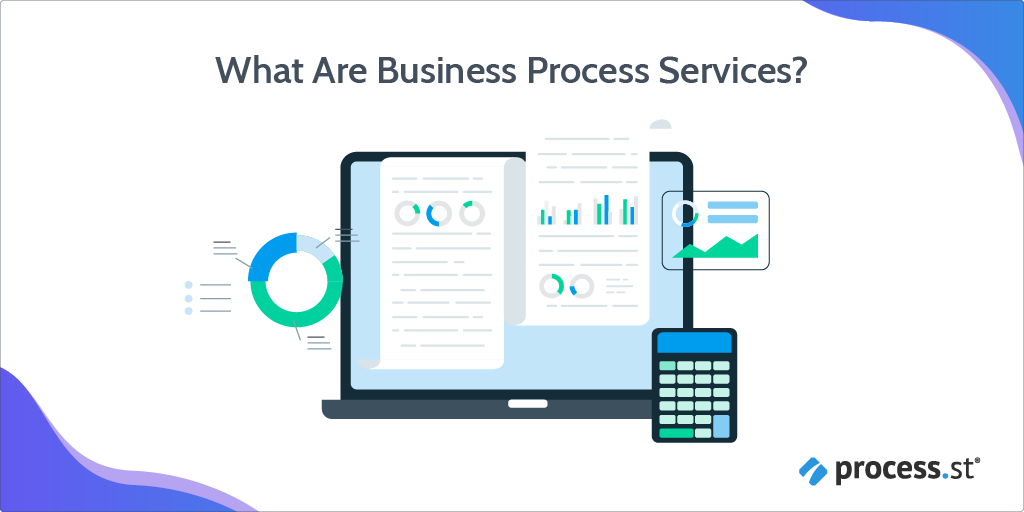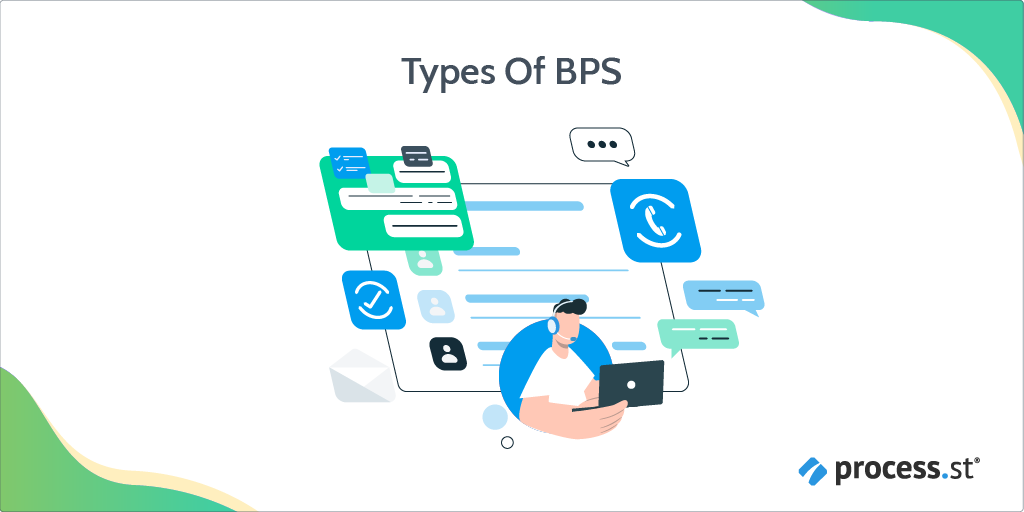Get work done right, and right-on-time with our industry leading BPM platform.
Business Process Services 101: All You Need To Know!
Business process services enable organizations to improve efficiency, reduce costs, and increase profits.
And if that’s what you’re after, then this BPM guide will come in handy!
I’ve found that one way businesses achieve the above objectives is by outsourcing their non-core functions to third-party service providers.
The practice is known as business process services (BPS).
This page will guide you through the concept of BPS and its benefits. I will also give you some useful examples of business process services that companies commonly outsource.
All this will make it much easier for you to understand if your business needs BPS and what the benefits are.
Let’s dive in!
What are business process services?

Business process services refer to the outsourcing of specific business functions to third-party service providers.
These functions could constitute:
- Accounting
- Payroll
- Human resources (HR)
- Customer service
- Marketing
- Sales
By outsourcing these functions, companies can focus on their core processes while leaving other activities to trained specialists.
What are the differences between BPS and BPO?
Business process services (BPS) and business process outsourcing (BPO) are often used interchangeably, but they are not the same thing.
BPS focuses specifically on outsourcing entire business processes to third-party service providers.
BPO, a subset of BPS, involves the outsourcing of non-core functions that require specialized skills, technology, or expertise.
Examples of BPO services include:
- Finance and accounting outsourcing (FAO)
- Human resource outsourcing (HRO)
- Customer service outsourcing
What are the benefits of business process services?
The benefits of outsourcing business processes are numerous and can vary depending on the specific needs of the company.
Below you’ll find some of the key benefits of business process services:
Cost reduction
Outsourcing business processes will likely result in significant cost savings.
Third-party service providers can offer their services at a lower cost due to their specialized expertise, resulting in lower operational costs.
Improved efficiency
By outsourcing non-core functions to third-party service providers, you’ll improve operational efficiency. How? By allowing your staff to focus on other important tasks instead!
Access to specialized expertise
Outsourcing business processes lets you access expertise that may not be available in-house.
Third-party service providers often have a team of experts with the necessary skills and experience to handle complex business processes.
Scalability
Outsourcing may help you to scale your operations up or down quickly without having to invest in additional resources or infrastructure.
Types of business process services

There are five main types of business process services. Let’s get to know them in more detail.
1. Information technology outsourcing (ITO)
This type of BPS involves outsourcing IT functions, including:
- Software development
- IT support
- Network management
- Data center operations
2. Knowledge process outsourcing (KPO)
KPO involves outsourcing high-value knowledge-based processes such as:
- Research and development
- Data analysis
- Market research
3. Legal process outsourcing (LPO)
LPO deals with outsourcing legal processes, for example:
- Contract management
- Document review
- Legal research
4. Human resource outsourcing (HRO)
HRO outsources human resource functions:
- Recruitment
- Payroll processing
- Employee benefits
- Training
5. Finance and accounting outsourcing (FAO)
Finally, BPS involves outsourcing finance and accounting processes such as:
- Accounts payable and receivable
- Financial reporting
- Tax preparation
Challenges of outsourcing business processes
While outsourcing business processes offers significant benefits, it also comes with certain challenges that you should consider.
Quality control
When outsourcing business processes, establish effective quality control measures to ensure that the quality of the service meets your standards.
Data security
Your sensitive data and confidential information must be protected when outsourcing business processes.
You’ll need robust security protocols and confirmation that their third-party service providers will comply with these protocols.
Communication and coordination
Outsourcing BPS can lead to communication and coordination challenges, especially when dealing with offshore service providers.
You should have effective communication channels in place to make sure that everyone can work collaboratively with service providers.
Risk management
By introducing BPS you may also be exposing your company to certain risks, such as legal and regulatory.
That’s why you need to establish effective risk management strategies to mitigate these.
Let’s summarize!
Business process services (BPS) have become an integral part of modern-day business operations.
They allow companies to focus on their core processes while outsourcing non-core functions to specialized third-party service providers.
Outsourcing business processes can result in significant cost savings, improved efficiency, and scalability.
But keep in mind that outsourcing comes with challenges that need to be carefully considered and managed.
That way, you’ll reap the benefits of outsourcing while minimizing the risks and challenges.







 Workflows
Workflows Projects
Projects Data Sets
Data Sets Forms
Forms Pages
Pages Automations
Automations Analytics
Analytics Apps
Apps Integrations
Integrations
 Property management
Property management
 Human resources
Human resources
 Customer management
Customer management
 Information technology
Information technology


